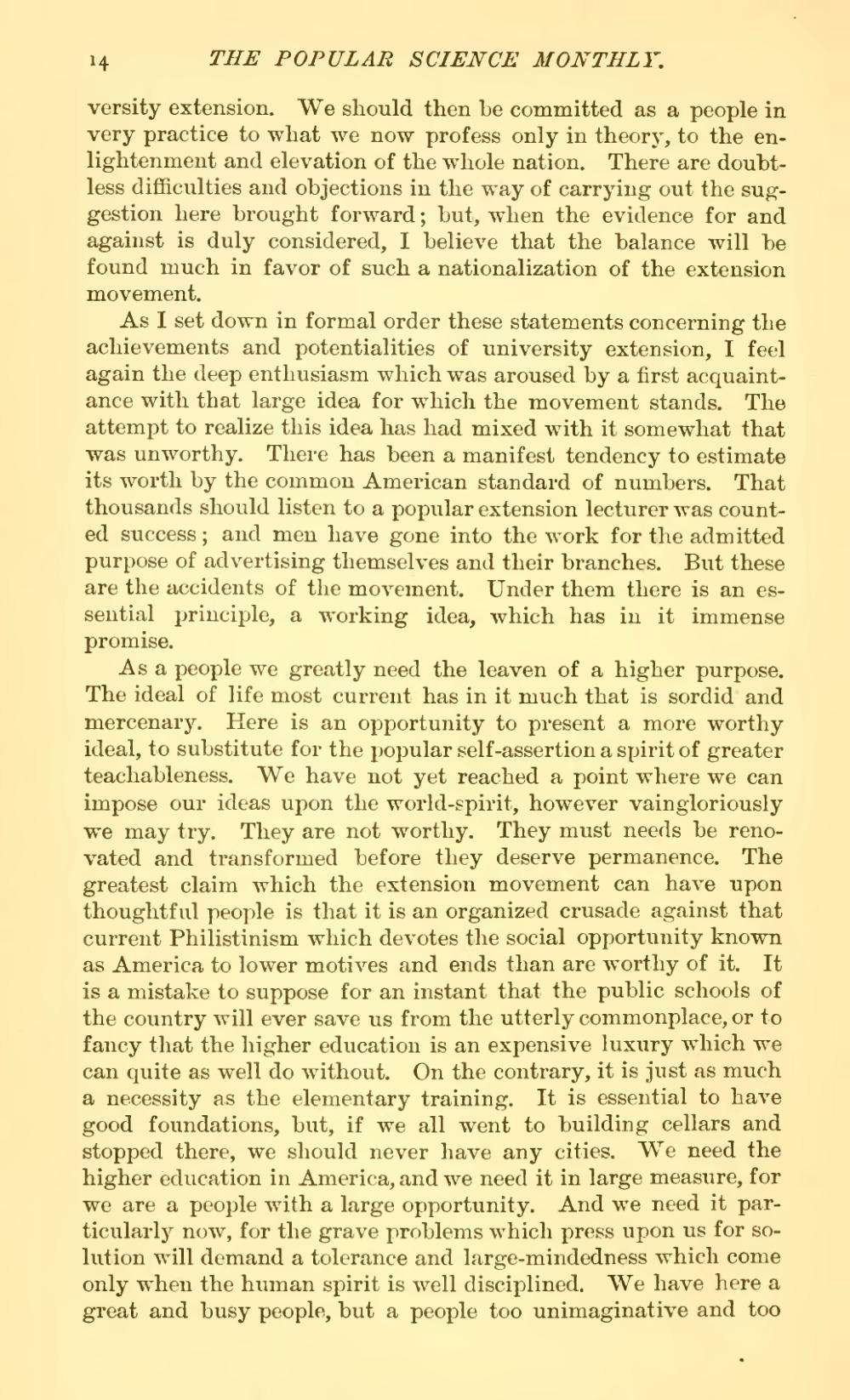versity extension. We should then be committed as a people in very practice to what we now profess only in theory, to the enlightenment and elevation of the whole nation. There are doubtless difficulties and objections in the way of carrying out the suggestion here brought forward; but, when the evidence for and against is duly considered, I believe that the balance will be found much in favor of such a nationalization of the extension movement.
As I set down in formal order these statements concerning the achievements and potentialities of university extension, I feel again the deep enthusiasm which was aroused by a first acquaintance with that large idea for which the movement stands. The attempt to realize this idea has had mixed with it somewhat that was unworthy. There has been a manifest tendency to estimate its worth by the common American standard of numbers. That thousands should listen to a popular extension lecturer was counted success; and men have gone into the work for the admitted purpose of advertising themselves and their branches. But these are the accidents of the movement. Under them there is an essential principle, a working idea, which has in it immense promise.
As a people we greatly need the leaven of a higher purpose. The ideal of life most current has in it much that is sordid and mercenary. Here is an opportunity to present a more worthy ideal, to substitute for the popular self-assertion a spirit of greater teachableness. We have not yet reached a point where we can impose our ideas upon the world-spirit, however vaingloriously we may try. They are not worthy. They must needs be renovated and transformed before they deserve permanence. The greatest claim which the extension movement can have upon thoughtful people is that it is an organized crusade against that current Philistinism which devotes the social opportunity known as America to lower motives and ends than are worthy of it. It is a mistake to suppose for an instant that the public schools of the country will ever save us from the utterly commonplace, or to fancy that the higher education is an expensive luxury which we can quite as well do without. On the contrary, it is just as much a necessity as the elementary training. It is essential to have good foundations, but, if we all went to building cellars and stopped there, we should never have any cities. We need the higher education in America, and we need it in large measure, for we are a people with a large opportunity. And we need it particularly now, for the grave problems which press upon us for solution will demand a tolerance and large-mindedness which come only when the human spirit is well disciplined. We have here a great and busy people, but a people too unimaginative and too

